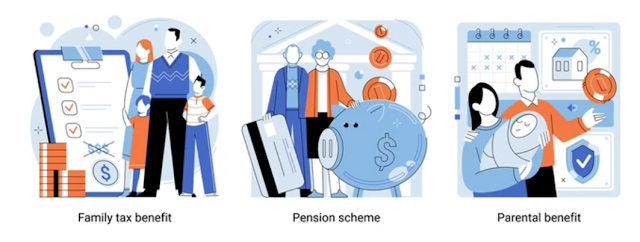Tax Tips for Parents: Maximizing Deductions and Credits
Raising a family can be both rewarding and expensive, and tax time is no exception. However, the good news is that there are various tax deductions and credits available to help parents ease the financial burden. By understanding the tax benefits available to them, parents can make informed decisions and optimize their tax situation. In this comprehensive article, we will explore essential tax tips for parents to maximize deductions and credits, ultimately keeping more money in their pockets.
1. Child Tax Credit
a. Eligibility: The Child Tax Credit provides a tax credit for each qualifying child under the age of 17. To be eligible, the child must be a U.S. citizen, resident alien, and have a valid Social Security number.
b. Credit Amount: The credit amount is up to $2,000 per qualifying child, subject to income limitations. A portion of the credit may be refundable for eligible taxpayers.
2. Child and Dependent Care Credit
a. Qualifying Expenses: The Child and Dependent Care Credit offers tax relief for child care expenses incurred to allow parents to work or look for work. Eligible expenses include daycare, preschool, and afterschool care.
b. Credit Percentage: The credit is calculated as a percentage of qualifying expenses, ranging from 20% to 35%, based on adjusted gross income (AGI).
3. Earned Income Tax Credit (EITC)
a. Eligibility: The Earned Income Tax Credit is a refundable credit designed to assist low-to-moderate-income working parents. Eligibility is based on earned income and family size.
b. Income Limits: Income limits for EITC change annually, so it's essential to check the latest IRS guidelines to determine eligibility.
4. Education Tax Credits
a. American Opportunity Credit: Parents can claim the American Opportunity Credit for higher education expenses, such as tuition and textbooks, for eligible students pursuing post-secondary education.
b. Lifetime Learning Credit: The Lifetime Learning Credit provides a credit for qualified education expenses for eligible students, including graduate students or those seeking professional degrees.
5. Adoption Tax Credit
a. Eligible Expenses: The Adoption Tax Credit offers tax relief for qualified adoption expenses, including adoption fees, court costs, and travel expenses.
b. Maximum Credit: The maximum credit amount is subject to change each year. Parents who adopt a child with special needs may be eligible for the full credit, regardless of qualifying expenses.
6. Health Savings Accounts (HSAs)
a. Tax Deduction: Parents with a high-deductible health insurance plan may contribute to an HSA and deduct the contributions from their taxable income.
b. Tax-Free Withdrawals: HSA funds can be withdrawn tax-free to pay for qualified medical expenses for the account holder and their dependents.
7. Dependent Exemptions (Prior to 2018 Tax Year)
a. Personal and Dependency Exemptions: Prior to the 2018 tax year, parents could claim a personal exemption for themselves and a dependency exemption for each qualifying dependent.
b. Changes in Tax Law: The Tax Cuts and Jobs Act (TCJA) eliminated personal and dependency exemptions from the 2018 tax year through 2025. However, other tax benefits like the Child Tax Credit were expanded to compensate for this change.
8. Record-Keeping and Documentation
a. Organize Documents: Parents should maintain organized records of expenses related to child care, education, and medical costs to support their tax deductions and credits.
b. Save Important Documents: Keep copies of birth certificates, adoption paperwork, and Social Security cards to verify dependent eligibility.
9. File Jointly (If Married)
Married couples with children generally benefit from filing jointly as it often results in a lower tax liability and access to more tax benefits.
10. Consult with a Tax Professional
For complex tax situations or to ensure that all available tax benefits are maximized, parents should consider consulting with a tax professional. A tax expert can provide personalized advice based on their specific circumstances.
Conclusion
Parents can take advantage of numerous tax deductions and credits to minimize their tax liability and keep more of their hard-earned money. The Child Tax Credit, Child and Dependent Care Credit, and Earned Income Tax Credit are valuable credits for families with children. Additionally, education tax credits and the Adoption Tax Credit offer further financial relief. Health Savings Accounts and other tax-favored accounts can also provide tax benefits. Organizing and maintaining proper documentation is essential to support tax deductions and credits. For complex tax situations, seeking guidance from a tax professional can ensure parents optimize their tax situation and benefit from all available tax breaks. By understanding and utilizing these tax tips, parents can better navigate tax season and achieve greater financial security for their family.










